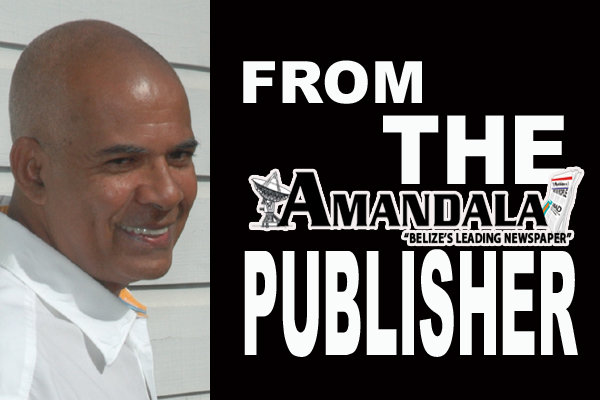During the time I spent visiting with my maternal uncle before he died about eight years ago, there were a couple stories he told me about the death penalty, which was by hanging in the case of British Honduras, which I will share with you today.
He told me, on more than one occasion, of a case where an onlooker who was watching a man stab another to death, shouted, “Dale uno para mi,” which is to say something to the effect of, “Give him a stab for me.” Literally, the Spanish words mean in English, “Give him one for me.” For those words, that onlooker received the death penalty and was hanged.
My uncle did not provide specifics, such as the name of the onlooker, the murderer, or his victim, so I only have his word to go on. I always found him to be very reliable when it came to the recounting of incidents, so I am inclined to believe the story. The story, nevertheless, does sound sensational today to the point of sounding incredible. But, colonial days in British Honduras where the matters of crime and punishment were concerned, were quite different from these times in independent Belize. Back then, such a story would not sound so sensational.
My uncle told me another story where he called the name of the accused murderer, who was one of his friends. Belize is too small, so I won’t spell out the name, which was John F——a. My uncle even told me he remembered the newspaper article about his friend’s murder trial, which described him as “smooth shaven John F——a.”
Anyway, back there in the 1950s my uncle used to work at the Public Works Department, which was south across the canal from the old Belize City Hospital. South across the street from the PWD workshop was the old Belize City prison, where the Central Bank Building and the Belize City Museum are now located. Early in the mornings, the prisoners would be let out of their cells so they could take the buckets with their waste to throw into the sea (this was before the “Marine Parade” filling of the sea in front of the land where the prison was located), and they would pass by the prison wall where they could see people across the street in the PWD workshop.
One morning, John F saw my uncle across the street in the workshop and screamed my uncle’s nickname loud enough for him to hear, “Buck, Buck, a get weh. A get weh. A get twenty years.” (For you pure English readers, “A get weh” would be Creole for “I got away.”) The point of the story was that the possibility of the gallows had been so real and so scary for John F that he had greeted a twenty-year sentence with absolute joy. He wanted to share his happiness with my uncle. Amazing.
My uncle was a man of the world, as we would say, and he confessed that he had lived through situations wherein the thought of murdering his antagonist had occurred to him. The reality of the hanging sentence had always served as a deterrent for him.
All the European societies used the death penalty to discipline and build their societies. Today, they are wealthy and developed. Belize is poor and struggling. When the Europeans took away the death penalty from us, by threatening to withhold any form of aid if we executed any of our murderers, we lost the ability to discipline and control our young men in Belize. That is one of the big reasons we flock across the border to Chetumal every weekend, so much so that we cause traffic jams, because we live scared lives in Belize. We feel safe in Chet. In Belize, we are afraid of our own children. It is the Europeans who are responsible for this. First, they enslaved us. Then, they colonized us. Now, they dictate to us through trade, aid, and other “agreements.” How sovereign are you when you can’t discipline your own children?
Personally, I have not been a crusader for the death penalty, because I don’t like to support initiatives which I personally would not be able to carry out. I don’t believe I would be able to hang a man, although in life sometimes a man has to do what a man has to do.
In addition, I understand the arguments of those who are opposed to the death penalty on the grounds that it is always poor people who are executed. I understand, and I sympathize. Trust me.
But, Belizeans, we have a crisis here, a socio-judicial emergency. The inmates have taken over the asylum. Yes, Guatemala is a massive danger to our sovereign existence, but they may not even have to invade. Belize may implode as a society because all the productive citizens are scared and rush to take their money to foreign lands. Because of our socio-judicial emergency, Belize has grown weaker and weaker economically, and the only thing left for us is bankruptcy.
There is no longer even a debate on the death penalty in Belize. We Belizeans have resigned ourselves to our fate: murderers rule. We move around like zombies in our own country during the week and rush to Chetumal for relief on weekends. The elite, of course, fly to more distant foreign places.
The topic is not a pleasant one. I will not pontificate. As civilized human beings, we Belizeans should have more control over our society than we do. That is my thesis. To emphasize, I close by repeating thoughts from a previous paragraph. I stand by these statements. “In Belize, we are afraid of our own children. It is the Europeans who are responsible for this.
First, they enslaved us. Then, they colonized us. Now, they dictate to us through trade, aid, and other ‘agreements.’ How sovereign are you when you can’t discipline your own children?”

